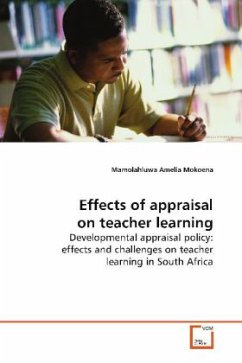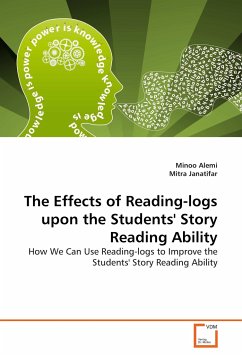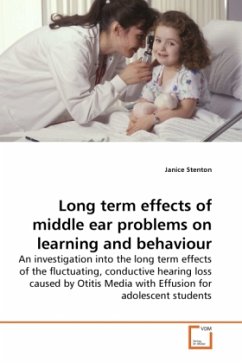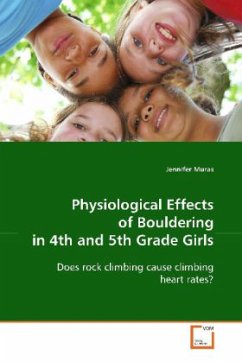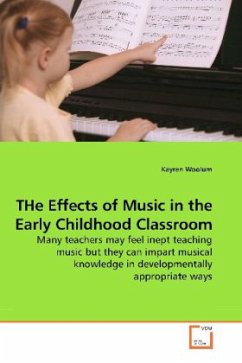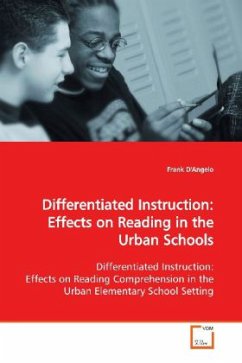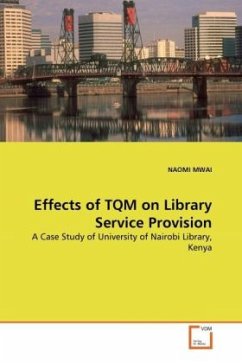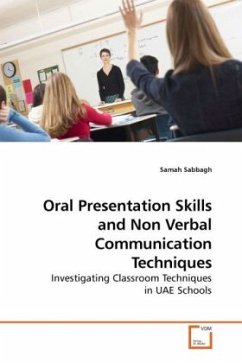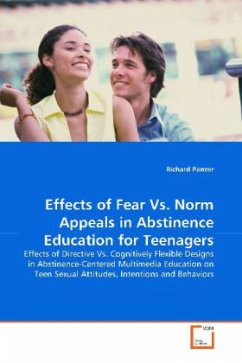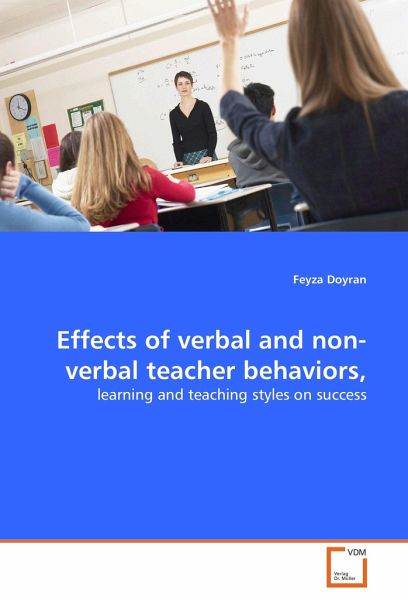
Effects of verbal and non-verbal teacher behaviors,
learning and teaching styles on success
Versandkostenfrei!
Versandfertig in 6-10 Tagen
52,99 €
inkl. MwSt.

PAYBACK Punkte
26 °P sammeln!
The purpose of this study is to investigate the effects of teacher non-verbal behaviors, teacher behaviors and preferred learning styles of the students on the English proficiency level. It is also aimed to find out about the classroom teaching aids and activities of the teachers and to see if there is consistency among teachers' self perceptions, students' perceptions and their preferences of the use of these aids and activities. Student needs and preferences of these dimensions, namely teacher non-verbal behaviors, teacher behaviors and classroom teaching aids and activities in regard to the...
The purpose of this study is to investigate the effects of teacher non-verbal behaviors, teacher behaviors and preferred learning styles of the students on the English proficiency level. It is also aimed to find out about the classroom teaching aids and activities of the teachers and to see if there is consistency among teachers' self perceptions, students' perceptions and their preferences of the use of these aids and activities. Student needs and preferences of these dimensions, namely teacher non-verbal behaviors, teacher behaviors and classroom teaching aids and activities in regard to their preferred styles of learning are also investigated. Based on quantitative and qualitative data analysis, the results indicated that there were significant correlations between teachers' use of 'coverbal behaviors' and English proficiency exam scores. Moreover, negative correlations were found between teachers' use of proxemics behaviors, students' department, kinesthetic learning style and proficiency exam scores. The study had important implications for teacher education.



